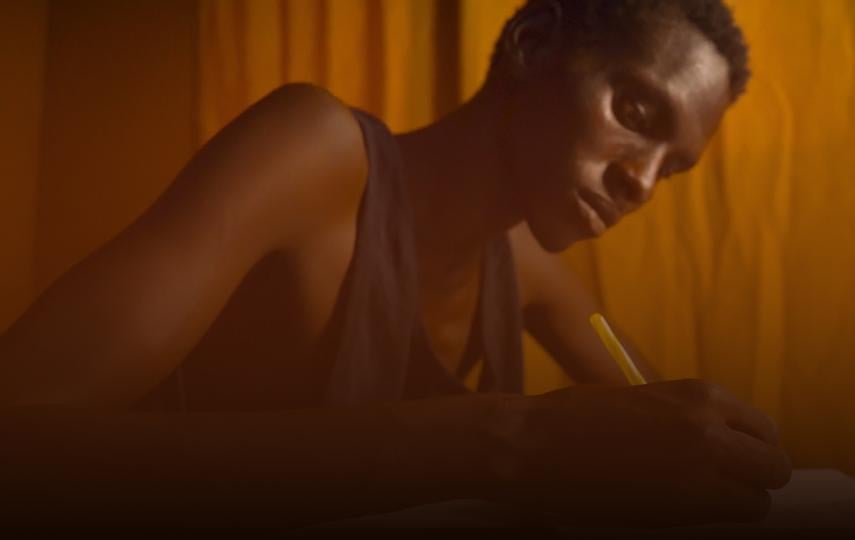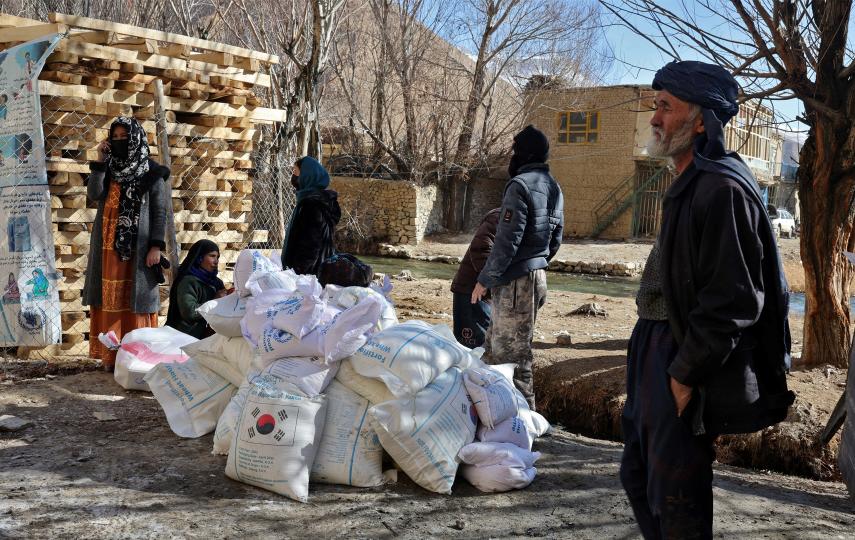Our editors’ weekly take on humanitarian news, trends, and developments from around the globe.
On our radar
India’s COVID-19 aid pivot
Facing record-breaking daily infections, long queues outside hospitals and crematoriums, and severe oxygen shortages, aid groups in India are pivoting to respond to a COVID-19 second wave that has overloaded the country’s health systems. The Indian government normally declines outside aid during disasters like cyclones or floods, but it has asked the international community for help. The EU is directing oxygen and equipment donations through its emergency response arm; the United States is speeding up the shipment of materials needed to produce vaccines, and sending oxygen cylinders and other equipment (slapped with USAID stickers); major UK charities have added India to a shortlist of countries on a COVID-19 fundraising campaign (Afghanistan, Democratic Republic of Congo, Somalia, South Sudan, Syria, and Yemen are the others). Agencies like the WHO and UNICEF have redeployed staff. They join an array of local aid responders already doing the work: Local aid groups that normally focus on disasters are setting up emergency isolation and treatment centres, sourcing oxygen for people waiting for hospital beds, and providing food to locked down families. Volunteer groups are also raising money for oxygen and food distribution.
Chad’s continued instability
Chad’s security forces cracked down on pro-democracy protests this week, killing at least five people. The demonstrators demanded the resignation of a military-led interim government that took power after long-serving president Idriss Déby was killed on 19 April. His son, Mahamat Idriss Déby, has taken power – a move the opposition termed a coup. France, condemned by the protesters over its support for Mahamat Déby, subsequently made a policy U-turn, calling instead for a civilian-led unity government until elections are held within 18 months. In a nod to the popular anger, Mahamat Déby said he was ready for an “inclusive dialogue”. But with Chad’s military riven by factions, he is not assured of the support of all his commanders – fuelling further concern over Chad’s stability. The Front for Change and Concord in Chad, known as FACT – the rebel group that claimed responsibility for killing his father – has vowed to fight on, although its forces are under pressure in the country’s northwest, with some reportedly crossing into Niger. Meanwhile, as a reminder of the new regime’s other security challenges, the Nigerian jihadist group Islamic State in West Africa Province said it killed 12 soldiers in the country’s southwest.
The crime wave taking over in Haiti
It’s a heartbreaking story that has put Haiti’s kidnapping surge into sharper focus: a five-year-old girl snatched off the streets in late January during a wave of abductions in the Caribbean country. Her mother, a peanut vendor in the outskirts of Port-au-Prince, couldn’t afford to pay the $4,000 ransom. Days later, Olslina Janneus was found dead – but details of her strangling only became public recently, while her mother has gone into hiding from the gang responsible. Meanwhile, four Catholic clergy members are still missing after they were abducted on 11 April. Another brazen kidnapping occurred earlier in April as church choir members were live-streaming a service on social media. Kidnappings last year tripled to 234 cases, according to UN data, but the actual numbers are thought to be much higher. The crime wave has added to political tensions in the country, where President Jovenal Moïse is under growing pressure to hold elections. More than 40 percent of Haiti’s 11 million population suffers from acute hunger, unemployment and inflation are sky-high, and people are growing increasingly afraid just to step out onto the streets.
Abuses, aid blocking continue in Ethiopia
International pressure on parties to the conflict in Ethiopia’s northern Tigray region is building, but abuses of civilians and aid blockages and looting continue. The United States and the EU have continued to pause some non-emergency aid to Ethiopia. The UK government should consider pursuing UN sanctions against individuals “found to be obstructing the delivery of essential humanitarian supplies and using starvation as a weapon of war”, according to a parliamentary committee. The Eritrean military remains in Tigray, and is accused of looting and abuses despite Ethiopia’s announcement a month ago that it would pull back. The AFP news agency obtained documents describing harassment and looting of aid supplies by Eritrean troops. Meanwhile, AP reported the rounding up and detention of thousands of Tigrayans amounting to a purge of military and civil service on grounds of ethnicity. The UN says 90 percent of displaced people have still not received help with shelter, and a major road was blocked by hostilities for 12 days.
Problems multiply in Gaza and Israel
It was a week of tension in Israel and the Occupied Palestinian Territories, with clashes between Palestinians and ultra-nationalist Israelis injuring some 100 people, after the latter chanted slogans including “death to Arabs” in East Jerusalem. Apparently in response, militant groups from Gaza shot rockets towards Israel, and Israel in turn launched strikes at what it said were Hamas targets in the Palestinian enclave, which is home to some two million people. Israel also closed Gaza’s fishing zone, which provides income to an estimated 5,000 people and their families, but announced it was re-opening the area on 29 April. At the same time as the ongoing unrest, long-awaited Palestinian elections look likely to be delayed; Human Rights Watch launched a 213-page report accusing Israel of the international crimes of apartheid and persecution because of systemic discrimination against Palestinians; and Gaza is battling a serious wave of COVID-19, with doctors warning that hospitals are overcrowded and running out of oxygen supplies.
UK aid cuts start to bite
The UN’s population and maternal health agency, UNFPA, said an 85 percent cut to its funding from Britain – about $180 million – will be “devastating”, jeopardising the lives of 250,000 mothers and children. The UK government has given only a broad outline of how it will achieve over $5 billion in reductions, shrinking its international aid spending by about a third, but details of where it is cutting its aid budget are starting to emerge. The government has said cuts are necessary due to pandemic spending pressures. Opposition lawmaker Sarah Champion said the lack of detail is “totally unacceptable”. NGOs said the cuts were a “tragic blow for many of the world’s most marginalised people”. The UK is known to be slashing donations to UNAIDS, and planning cuts to water and sanitation, polio control, research, and humanitarian spending.
In case you missed it
EU: The European Commission launched a “new strategy” on voluntary return and reintegration this week aimed at increasing the number of rejected asylum seekers and irregular migrants who choose to go back to their countries of origin. The strategy is a key step forward in implementing the EU’s New Pact on Migration and Asylum, introduced last September, but has already raised concerns among rights advocates.
KENYA: Dadaab and Kakuma refugee camps will close by June next year, delaying a government shutdown order made in April – blocked by the High Court. Under a new agreement with the UN’s refugee agency, UNHCR, there will be voluntary repatriation and relocation, but some refugees will also be provided with work and residence permits – a potentially dramatic shift in the country’s camp-based refugee policy.
LIBYA: Amnesty International said military courts in eastern Libya have convicted hundreds of civilians in “secret and grossly unfair” trials since 2018, resulting in death sentences and imprisonment. The rights watchdog said those tried include journalists, protesters, and people who used social media to criticise the groups that control the country’s east.
MYANMAR: At least 40,000 people are displaced in southeastern Myanmar – the majority since the 1 February military coup, the UN says – as conflict between the military and the Karen National Liberation Army escalates. The Karen Women’s Organization rights group said airstrikes pushed 300 people to flee to neighbouring Thailand.
THE PHILIPPINES: Amid lockdowns and rising hunger, activists and relief workers continue to be “red-tagged” – accused of ties to communist militants. Groups that have set up pantries supplying food to locked-down neighbourhoods have been targeted in recent days, as have health workers criticising government policy, Amnesty International said. Read our recent story on food and COVID-19 in the Philippines.
SAHEL: Almost 29 million people in six Sahelian countries will need assistance and protection this year – five million more than last year. Political violence, deep poverty, climate change, and chronic food insecurity are driving the crisis in Burkina Faso, Cameroon, Chad, Mali, Niger, and Nigeria. Spreading jihadist-linked conflict has been especially destabalising for vulnerable communities.
SOMALIA: Bowing to pressure, President Mohamed Abdullahi “Farmajo” agreed on 28 April not to extend his term in office and to return to the negotiating table with opposition parties to discuss the holding of delayed elections. There had been armed clashes in Mogadishu the weekend before with those opposed to his extension plan, and several of the country’s regional states also refused to back him.
UN: The next humanitarian chief of the UN, to replace Mark Lowcock, has not yet been announced, although insiders expect a decision soon. UN boss António Guterres is expected to select from a shortlist based on interviews led by his deputy, Amina Mohammed.
Weekend read
As desperation grows, Venezuelans look to a dangerous Caribbean escape route
Last week saw a breakthrough in international attempts to alleviate the humanitarian crisis in Venezuela as the World Food Programme announced a deal to provide daily meals to 1.5 million schoolchildren by the end of 2023. But with inflation forecast at 5,500 percent this year, malnutrition on the rise, and a recent spike in COVID-19 cases, there’s no sign of the crisis itself abating. For many in the eastern states of Sucre and Delta Amacuro – where the tourism and fishing industries have largely been replaced by drug-trafficking and people-smuggling – the most tempting escape is the Caribbean nation of Trinidad and Tobago, just 24 kilometres off the coast. But as Nayrobis Rodríguez and Joshua Collins report, the waterway is hazardous, sometimes deadly. And in Trinidad itself, the official reception is increasingly unfriendly and the asylum system practically non-existent. The reality, especially for women smuggled in by coyotes, is grim and can amount to slave labour and sexual exploitation.
And finally…
Voluntary solidarity in the EU?
Time for some light amongst all the darkness. Efforts in the EU to develop a common response to irregular migration have been stalled for years due to deep disagreements over which countries should be responsible for asylum seekers arriving to the continent. Now, a campaign called Europe Welcomes – backed by the Greens/EFA parliamentary group in the European Parliament – is highlighting the willingness of hundreds of municipalities across the continent to take in people rescued at sea or who need to be relocated from overcrowded refugee camps in Greece. Ultimately, national governments have control over immigration policy. But the initiative shows the extent of local support to show solidarity with refugees and asylum seekers despite deadlock and harsh policies at the national and EU levels.




